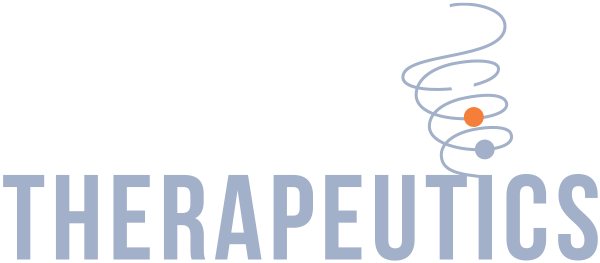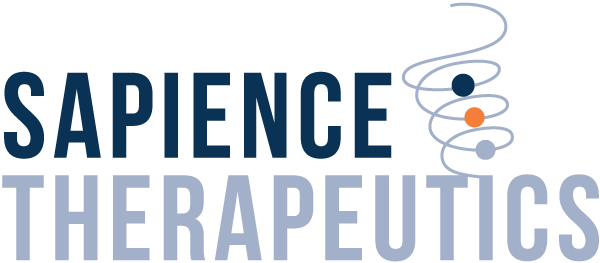– ST101 poster to highlight novel macrophage-driven mechanism of action –
– ST316 poster to highlight its potential to address Wnt-driven cancers with poor clinical responses to immunotherapeutic agents –
HARRISON, N.Y., April 14, 2023 — Sapience Therapeutics, Inc., a clinical-stage biotechnology company focused on the discovery and development of peptide therapeutics to address oncogenic and immune dysregulation that drive cancer, announced today the presentation of two late-breaking research posters during the American Association for Cancer Research (AACR) Annual Meeting 2023, taking place April 14-19, 2023, in Orlando, Florida.
“We are thrilled to showcase late-breaking results at this year’s AACR meeting with data from our ST101 and ST316 programs that address difficult-to-drug cancer targets, C/EBPβ and β-catenin,” said Dr. Barry Kappel, founder, CEO and President of Sapience. “These datasets demonstrate the roles of ST101 and ST316 in shifting an immune-suppressive tumor microenvironment to an immune-active state, and support evaluating both agents in coordination with immune-oncology (I/O) therapeutic strategies. In particular, with ST316 set to begin patient dosing in a Phase 1-2 clinical study in mid-2023, we are excited that these datasets further elucidate its unique mechanism of action.”
ST101 Abstract Highlights:
ST101 is a first-in-class antagonist of C/EBPβ that has demonstrated clinical proof-of-concept in advanced solid tumors. ST101 is currently being evaluated in the Phase 2 portion of an ongoing Phase 1-2 clinical study in patients with advanced unresectable and metastatic solid tumors (NCT04478279).
- As a critical regulator of the immunosuppressive tumor microenvironment, activation of C/EBPβ triggers macrophage polarization toward immunosuppressive M2-type myeloid-derived suppressor cells (MDSCs) and correlates with poor prognosis in several types of human cancer.
- ST101 reprograms tumor-associated macrophages (TAMs) from the M2 phenotype toward the immune-promoting M1 phenotype, representing an attractive strategy to enhance antitumor immunity.
- In preclinical models, ST101-mediated macrophage polarization to the M1 phenotype enhances the in vivo anti-tumor activity of anti-PD1 checkpoint inhibition.
- In patient biopsies, ST101 modulates the tumor immune microenvironment by suppressing genes required for M2 macrophage polarization, culminating in an enhanced CD8 T-cell/Treg ratio.
- The data support a novel, macrophage-driven mechanism of action for ST101 and suggest the exploration of ST101 in I/O therapeutic strategies.
Title: “ST101, a peptide antagonist of novel I/O target C/EBPβ, reprograms MDSCs and promotes an immunoactive tumor microenvironment”
Session Title: Late-Breaking Research: Experimental and Molecular Therapeutics 2
Session Date and Time: Tuesday April 18, 2023, 1:30 PM – 5:00 PM
Location: Poster Section 34
Abstract Presentation Number: LB236
ST316 Abstract Highlights:
ST316 is a first-in-class peptide antagonist of the interaction between β-catenin and its co-activator BCL9, a complex that drives oncogenesis in multiple cancers where aberrant Wnt/β-catenin pathway signaling is observed. In March of this year, Sapience announced that it received clearance from the U.S. Food and Drug Administration (FDA) to proceed with a Phase 1-2 clinical trial of ST316 for the treatment of solid tumors.
- In addition to its direct oncogenic role, dysregulated Wnt/b-catenin signaling also promotes tumorigenesis by suppressing the tumor immune microenvironment (TIME).
- Nonclinical data indicate that ST316 exposure to human peripheral blood mononuclear cells shifts M2 macrophages to the M1 phenotype and increases CD8 T-cell activation in macrophage/T-cell mixed cultures.
- ST316 enhances the anti-tumor activity of anti-PD-1 checkpoint inhibition in a preclinical triple-negative breast cancer model.
- These results support the immuno-therapeutic potential of ST316 to enhance current I/O therapeutic approaches.
Title: “Immunotherapeutic potential of ST316, a peptide antagonist of β-catenin”
Session Title: Late-Breaking Research: Experimental and Molecular Therapeutics 1
Session Date and Time: Sunday April 16, 2023, 1:30 PM – 5:00 PM
Location: Poster Section 35
Abstract Presentation Number: LB016
Abstracts and full session details are available through the AACR Annual Meeting planner: AACR Annual Meeting 2023 | Meetings | AACR
About ST101
ST101, a first-in-class antagonist of C/EBPβ, is currently being evaluated in the Phase 2 portion of an ongoing Phase 1-2 clinical study in patients with advanced unresectable and metastatic solid tumors (NCT04478279). ST101-101 is an open-label, Phase 1-2 dose-finding study designed to determine the safety, tolerability, PK, PD, and proof-of-concept efficacy of ST101 in patients with advanced solid tumors. The study consists of two phases: Phase 1 dose escalation/regimen exploration and Phase 2 dose expansion. In the ongoing Phase 2 dose expansion, Sapience is evaluating patients with GBM, metastatic cutaneous melanoma, castration-resistant prostate cancer and locally advanced or metastatic hormone-receptor positive breast cancer. In the ongoing dose escalation part of the study, ST101 has demonstrated clinical proof-of-concept with a durable RECIST 1.1-confirmed partial response (PR) in a patient with cutaneous melanoma and evidence of long-lasting stable disease in several additional patients. In the ongoing Phase 2 dose expansion part of the study, ST101 has demonstrated clinical proof-of-concept with a mRANO-confirmed partial response in a patient with recurrent GBM and evidence of long-lasting stable disease in several additional patients.
ST101 has been granted Fast Track designation for recurrent GBM and advanced cutaneous melanoma in patients who have disease progression on or after anti-PD-1/anti-PD-L1 therapy, as well as orphan designations from the FDA for Stage IIb-IV melanoma, glioma and AML, and from the European Commission for the treatment of glioma.
About ST316
ST316 is a first-in-class peptide antagonist of the interaction between β-catenin and its co-activator BCL9, a complex that drives oncogene expression in multiple cancers where aberrant Wnt/β-catenin pathway signaling is observed. The interaction between β-catenin and BCL9 has previously been considered an ‘undruggable’ target due to the inability of small molecules to inhibit complex formation and antibodies to gain access to the cytoplasm or nucleus to disrupt the interaction. ST316 contains a cell penetration moiety to allow intracellular access and a domain designed to bind the first armadillo repeat domain of β-catenin, a site utilized by BCL9 but no other β-catenin binding partners. ST316 suppresses transcription of oncogenic Wnt target genes regulating proliferation, migration, invasion and the metastatic potential of tumor cells, as well as genes regulating the immunosuppression of the tumor microenvironment.
Sapience has received IND clearance to proceed with a Phase 1-2 clinical study of ST316. The Phase 1 dose-escalation portion of the study is designed as a basket study to enroll patients with tumors likely to harbor abnormalities of the Wnt/β-catenin signaling pathway. Sapience expects to begin dosing patients in the Phase 1 portion in mid-2023 to evaluate the safety, clinical activity, pharmacokinetics and pharmacodynamics of ST316. The Phase 2 dose-expansion portion of the study will enroll patients in four specific tumor types known to harbor abnormalities of the Wnt/β-catenin signaling pathway, including cholangiocarcinoma, colorectal, triple negative breast and ovarian cancers.
About Sapience Therapeutics
Sapience Therapeutics, Inc. is a privately held, clinical-stage biotechnology company focused on discovering and developing peptide therapeutics to address oncogenic and immune dysregulation that drive cancer. Its pipeline of SPEARs™ (Stabilized Peptides Engineered Against Regulation) disrupt intracellular protein-protein interactions, enabling targeting of transcription factors which have traditionally been considered undruggable. Sapience’s lead program, ST101, is a first-in-class antagonist of C/EBPβ that has demonstrated clinical proof-of-concept in advanced solid tumors. Sapience has received IND clearance to proceed with its second program, ST316, a first-in-class antagonist of β-catenin, and expects to begin dosing patients in mid-2023. For more information on Sapience Therapeutics, please visit www.sapiencetherapeutics.com and engage with us on LinkedIn.
Cautionary Note on Forward-Looking Statements
This press release contains forward-looking statements. Any statements herein other than statements of historical fact could be deemed to be forward-looking statements. These forward-looking statements may include, among other things, statements regarding future events that involve significant risks and uncertainties (including with respect to Sapience’s preclinical and clinical development programs). These forward-looking statements are based on management’s current expectations, and actual results and future events may differ materially as a result of certain factors, including, without limitation, our ability to obtain additional funds, and meet applicable regulatory standards and receive required regulatory approvals. Forward-looking statements speak only as of the date of this press release. Sapience does not undertake any obligation to update any forward-looking statements as a result of new information, future events, changed assumptions or otherwise, except as required by law.
Contacts
Sapience Therapeutics, Inc.:
Barry Kappel, Ph.D., M.B.A.
President and Chief Executive Officer
info@sapiencetherapeutics.com
Media and Investor Contact:
Amy Conrad
Juniper Point
(858) 366-3243
amy@juniper-point.com

